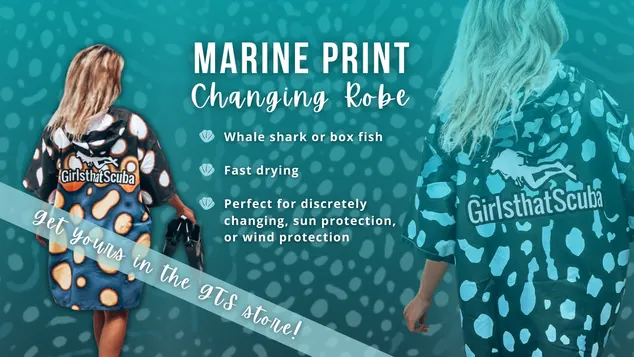For those who’re a licensed scuba diver, you’ll have discovered about decompression illness (DCS) throughout your coaching. No matter how safely and conservatively we scuba dive, there’s at all times an opportunity that DCS may occur.
Opposite to widespread perception, decompression illness doesn’t simply occur attributable to reckless diving. On dive journeys with a number of each day dives throughout repetitive days, equivalent to liveaboard diving, it’s extra widespread than you’d assume.
For these causes, we consider it’s vital to empower divers with data on DCS, equivalent to how one can recognise decompression illness signs, what to do in the event you suspect you might have DCS, and how one can forestall decompression illness. This information will cowl every thing it is advisable find out about decompression illness.
What’s decompression illness?
After we scuba dive, nitrogen is absorbed into our physique tissues as a result of elevated water stress round us. Decompression illness, also referred to as “the bends”, can occur when this nitrogen comes out of answer quickly attributable to a lower in stress, equivalent to once we ascend from a dive.
This causes bubbles to type in bodily tissues, which may end up in delicate, minor signs, or extra extreme neurological impacts.
How will you inform if in case you have decompression illness?
Signs of DCS often seem inside quarter-hour, however could happen as much as 12 hours after surfacing. Divers Alert Community (DAN) say that “denial is arguably the worst ‘symptom’ of DCS”, as divers typically put their signs all the way down to different causes. They could blame “overexertion, heavy lifting or perhaps a tight wetsuit”.
Any of the next signs may imply {that a} diver has DCS.
Commonest signs
DAN identifies these as the commonest manifestations of DCS:
- Ache in joints, arms, legs, or torso
- Numbness, tingling, muscle weak spot, or paralysis
- Problem urinating
Delicate DCS signs
Different gentle signs of DCS could embrace:
- Pores and skin itch
- Blotchy rash (typically known as “pores and skin bends”)
- Breast soreness
- Dizziness, vertigo
- Ringing in ears
- Shortness of breath
Extreme DCS signs
The next are extreme signs of DCS, which require speedy medical consideration:
- Confusion, unusual behaviour, amnesia
- Tremors
- Staggering
- Coughing up blood
- Unconsciousness or collapse
What do you do in the event you assume you might have DCS?
For those who’re experiencing any of those signs of decompression illness, it’s best to search assist instantly. As talked about, it’s extremely widespread to downplay DCS signs and for divers to place them all the way down to different causes. Nevertheless, it’s vital to get handled as quickly as potential.
Within the case of extreme DCS signs, search emergency medical help instantly.
For the milder signs, in the event you’re nonetheless near your dive operator they are going to have the ability to assist in the primary occasion. For those who’re on a liveaboard, discover the Cruise Director for help. The dive operator can have emergency oxygen obtainable, which is the primary assist step for suspected DCS. For those who’ve travelled away out of your dive operator, head to the closest emergency medical care.
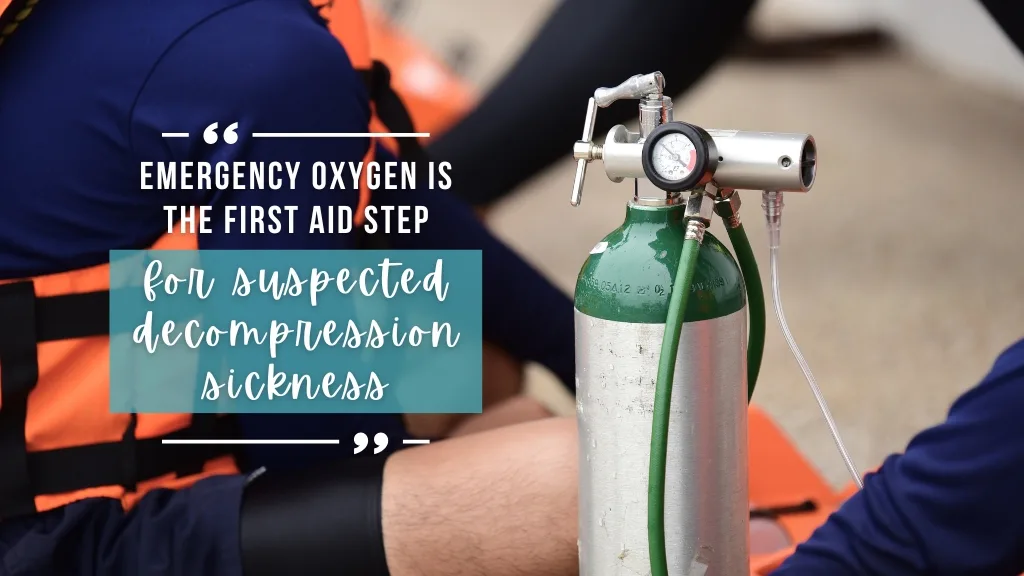
You can even contact DAN, who’ve dive physicians obtainable by telephone 24/7. Their dive medics can supply recommendation and liaise with any native medical providers. They will additionally assist to rearrange remedy in a recompression chamber.
When diving in a brand new vacation spot, we’d at all times advocate wanting up the closest chamber, or asking your dive operator for the placement. It’s useful to be ready with this data within the unlikely occasion you may want it.
Medical evacuation and recompression remedy could be pricey. Because of this, we extremely advocate at all times travelling with dive insurance coverage and journey insurance coverage. This could cowl you for dive medical remedy, in addition to any journey issues (equivalent to missed flights) which can come up from looking for remedy.
How will you forestall decompression illness?
There are quite a lot of elements which can contribute to decompression illness, and our susceptibility can change from day-to-day, and naturally, dive-to-dive. We will by no means really take away the prospect of DCS, and loads of divers following all the foundations nonetheless expertise “undeserved hits” of decompression illness. Nevertheless, listed below are some actions you may take earlier than, throughout, and after diving, to attempt to scale back your threat.
Earlier than and between dives
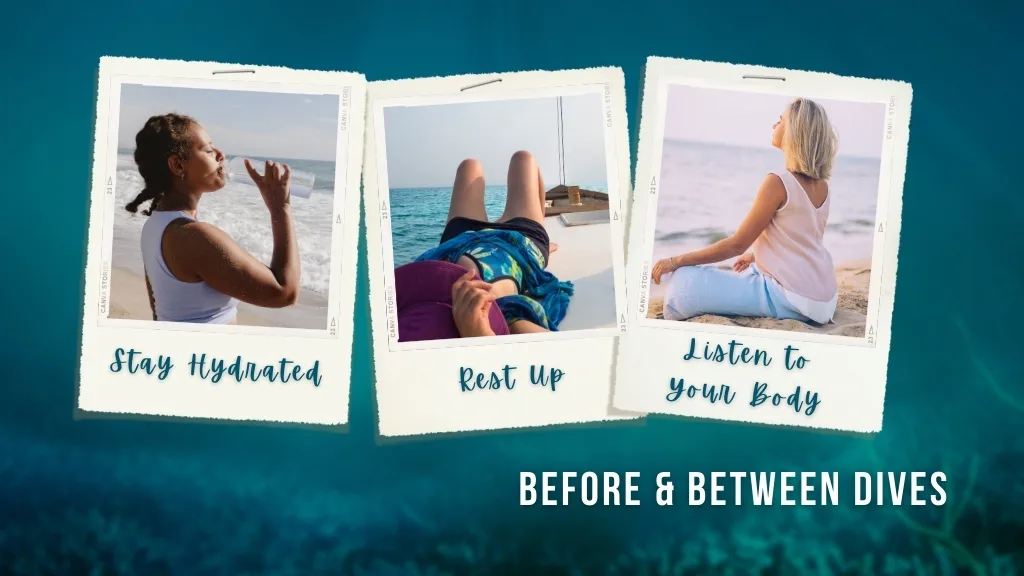
Keep hydrated. Make certain to drink loads of water. Contemplate including electrolytes to spice up your hydration.
Relaxation up. Make sure you’re getting loads of sleep between dive days, and relaxation in between dives, too. What an excellent excuse for a nap on the dive deck!
Hearken to your physique. There’s no stress to do each single dive on a visit, so dive the dives you wish to, and skip those you don’t. For those who’re feeling a bit drained, unwell, or dehydrated, take it as your cue to take a relaxation.
Throughout dives

Dive conservatively. Keep effectively inside your laptop’s no decompression restrict, significantly if diving under 30m (98ft). Contemplate setting your laptop extra conservatively for repetitive diving. Make certain to finish your security stops to permit additional time for nitrogen to off-gas, and contemplate extending your security stops to five minutes for repetitive diving.
Use Nitrox. For those who’re licensed to, selecting to dive with Nitrox can scale back your threat of DCS. If you’re diving with Nitrox, keep in mind to at all times analyse your individual fuel. It’s your duty to know what fuel you’re diving with and set your laptop accordingly.
Take it sluggish. Don’t over-exert on dives. Any additional exercise underwater can enhance your threat of DCS. For those who’re discovering situations tough, let your buddy and information know. Bear in mind, any diver can cancel any dive, at any time, for any purpose.
After dives
Heat up slowly. Don’t take highly regarded showers or use scorching tubs straight after diving.
Don’t train. In response to DAN, “any train […] ought to be prevented so long as potential after a dive”. You’re on trip, save the exercise for at house!
Save for Later
These pictures have all of this data condensed into fast, straightforward recommendation, which could be saved to your telephone or different gadget for fast assist when you may’t get on-line. Screenshot or click on to save lots of for later!
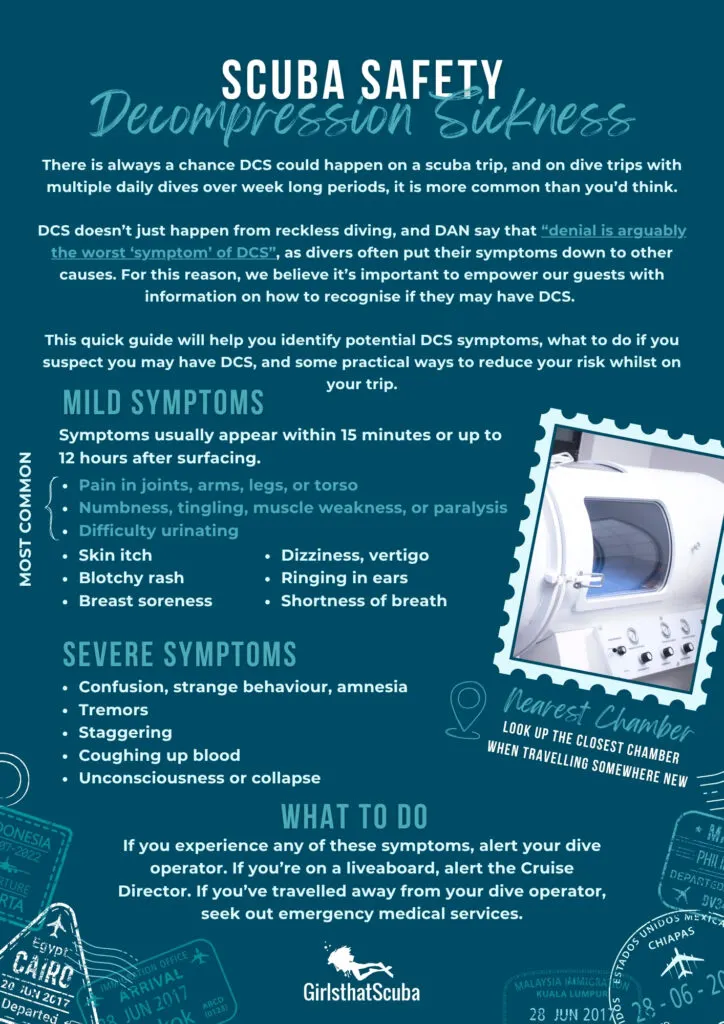
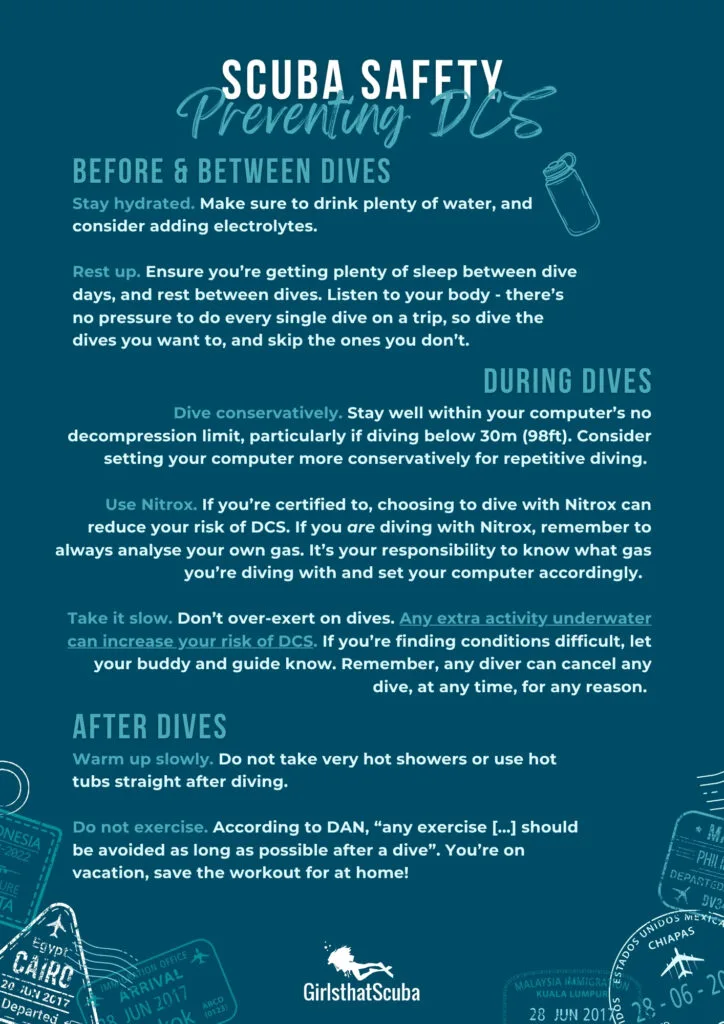
While all of us hope it gained’t occur to us, being empowered with this data may provide help to or a fellow diver in an emergency scenario. Share this with a scuba buddy, and be a part of us over within the Women that Scuba Neighborhood to share your dive tales!



